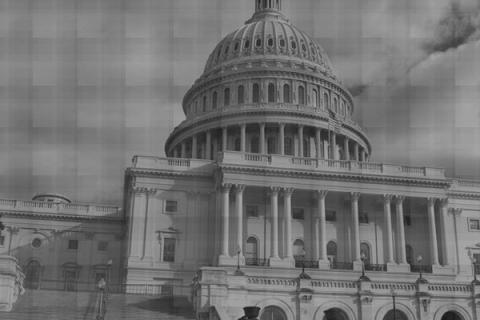The Mercatus Center at George Mason University has published an update and a revision of a 2007 study entitled “Freedom in the 50 States: An Index of Personal and Economic Freedom”. The report analyzed three primary “freedom variables” for each state, determining the overall burden that local and state policies place on individual residents.
So how did California stack up? Frankly, not so good. In fact, California was only underperformed by New Jersey and New York.
The authors, William Ruger and Jason Sorens – professors of political science from Texas State University and the University at Buffalo – ground their concept of freedom on:
“an individual-rights framework, following the natural-rights liberalism of John Locke, Immanuel Kant, and Robert Nozick while remaining consistent with the philosophy of rights-generating rule utilitarianism.”
In their study, the authors assessed freedom variables for each state, including: fiscal policy (dealing with rules on spending and taxation), regulatory policy (denoting such things as labor, health insurance and eminent domain regulations), and personal freedom (concerning laws covering education, marriage, drugs, victimless crimes, firearms and civil liberties). These variables were weighed against the “ideal regime of maximum individual freedom.” Their golden rule of freedom is that:
“individuals should be allowed to dispose of their lives, liberties, and properties as they see fit, as long as they do not infringe on the rights of others.”
To find a state's economic freedom ranking, the authors combined fiscal and regulatory variables. When the economic freedom score was taken together with the personal freedom variable, an overall freedom ranking was generated.
New Hampshire and South Dakota were neck and neck for first and second places respectively. They were followed by Indiana, Idaho and Missouri. To California's credit, New York trumped all other states as the worst offender on the Ruger-Sorens freedom scale by a significant margin. Massachusetts and Hawaii joined the golden state and New Jersey to round out the bottom five.
“Contrary to popular perception, California not only taxes and regulates its economy more than most other states, it also aggressively interferes in the personal lives of its citizens," said the report's profile summary of the golden state.
It continued:
"California simply needs to cut government spending. The budgetary categories most out of line with the rest of the country are administration, social services, environment and housing, and “other.” Labor laws are extremely strict, of course; for instance, California is one of only five states to mandate short-term disability insurance. Health-insurance coverage mandates add about 49 percent to the cost of premiums in the state. Eminent-domain reform has been cosmetic, and the state’s liability system almost reaches the abysmal quality of the Deep South’s. On personal freedoms, California does well on same-sex partnerships and marijuana, but it also has the most restrictive gun laws in the country, a highly restrictive policy regime for motorists, and smoking bans. The state’s civil asset-forfeiture regime is arguably the best in the country, apart from North Carolina’s, which has only criminal forfeiture.”
Each state profile was accompanyed by three policy recommendations to help that state advance in the ranks. According to the authors, California should:
Repeal some health-insurance mandated coverages, such as acupuncture, orthotics, IVF, home health care, dental anesthesia, and bone-mass measurement.
Cut state spending in the categories in which spending is well above national averages.
Relax labor laws to boost employment, such as repealing short-term disability and paid family leave mandates.
California's dismal performance in a ranking that is based on Lockean principles of individual liberty might come as a surprise to those who view the Democratic Party stronghold as sympathetic to civil liberties. What's interesting is that all of the bottom five states (and this applies to the personal freedom ranking as well) heavily favor Democratic candidates for office.
There are a few more interesting trends that the report reveals.
The authors compared each of the rankings with domestic migration between the states. What they've discovered is that:
“Americans are voting with their feet and moving to states with more economic and personal freedom and that economic freedom correlates with better income growth.” The report found that, “an increase of 0.5 points on the freedom scale, for instance from Connecticut to Iowa , increases net migration by a whopping 5.9 percentage points of 2000 population.”
What is even more intriguing is that:
“the positive effect of personal freedom is actually more than twice as large as that of economic freedom,” according to the authors. It is their belief that “Americans in general are indeed attracted to freedom for its own sake, not just for the economic benefits.”
The study also found that those states ranked highest are more likely to be swing states than Republican Party strongholds. Perhaps the Independent voter blocs present in New Hampshire and Indiana (both Democrat-leaning states) are a different breed than California's.

